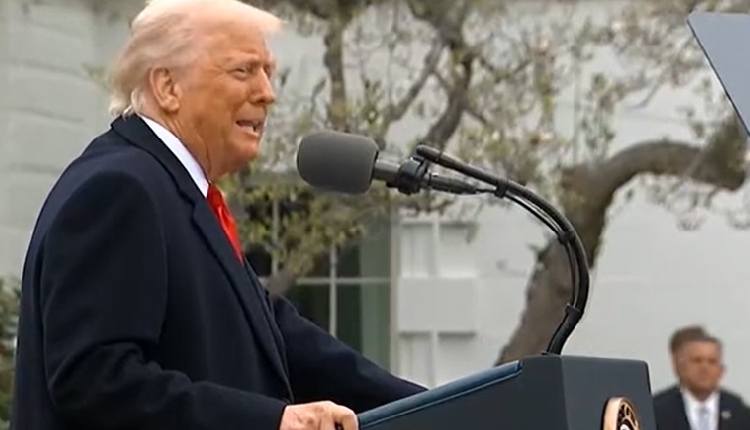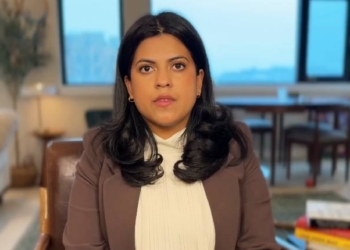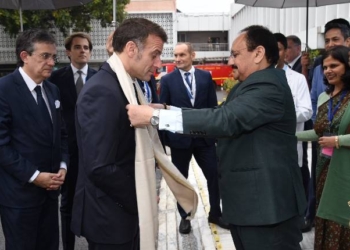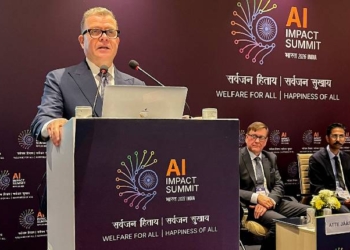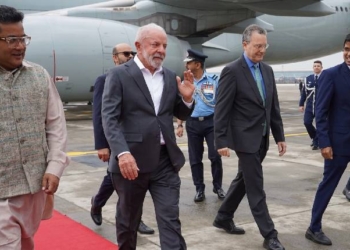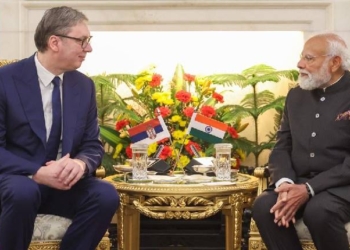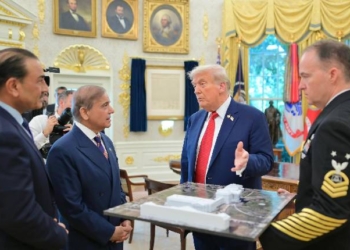Seoul: South Korea should take a prudent and guarded approach in its negotiations with the Trump administration over his proposed “package deal” on tariffs and security issues, as it would be better not to hastily respond to such talks under Seoul’s current acting leadership, experts said on Thursday.
Experts said South Korea needs to carefully consider what it can offer to the United States and secure from it in return, such as stronger U.S. security commitment, as Trump has announced a 90-day pause on its “reciprocal” tariffs on South Korea and others, reports Yonhap news agency.
Trump suggested that his administration will put other security and non-tariff issues all on the table, saying that reducing American troops abroad, like in Europe and South Korea, can be “part of” the negotiations.
His remarks added to growing speculation that Washington under his command could bring up the defence cost-sharing agreement as a condition for the tariff negotiations with Seoul.
“Under the current acting presidency, and with the tariff pause, the priority should be to clearly assess U.S. intentions and lay the groundwork so that the next government can respond strategically,” Yang Uk, a research fellow at the Asan Institute of Policy Studies, said.
He said Trump’s tariff salvo may be an opportunity for South Korea to secure more meaningful security commitments from the U.S. in deterring North Korea’s military threats.
“The fact that North Korea’s nuclear threats have reached a new level is the most pressing issue for us. We could ask for in return, for example, the U.S. to consider redeploying U.S. tactical nuclear assets to South Korea, to boost our defence,” he said.
Trump’s remarks came after his first phone talks with acting President Han Duck-soo on Tuesday, during which he said they discussed Seoul’s “payment for the U.S.’ big time military protection” and the “confines and probability” of a deal for both countries that are “not covered by trade and tariffs.”
Some experts argue that South Korea should consider accepting a higher share of defence-sharing costs if the Trump administration moves to overturn the finalized agreement and push for a new deal.
In October, Seoul and Washington struck the Special Measures Agreement (SMA), under which Seoul is to pay 1.52 trillion won (US$1.03 billion) next year for the stationing of the 28,500-strong U.S. Forces Korea (USFK), up from 1.4 trillion won this year.
Trump has referred to South Korea as a “money machine” and, as a presidential candidate, said that if he were in the White House, the U.S. ally would be paying significantly more for its defence.
Seoul’s position has now become increasingly precarious as Trump has made the issues of cost-sharing and troops presence more explicit.
“Since Trump doesn’t always stick to the traditional frameworks, his unpredictability could work as an advantage and potentially lead to a stronger security outcome for South Korea,” Yang said.
While South Korea has expressed a willingness to discuss economic cooperation, such as shipbuilding and potential participation in the U.S.’ envisioned Alaska liquefied natural gas pipeline project, it has maintained that the defence burden-sharing deal is a settled matter and a separate issue from the tariff negotiations.
(IANS)




